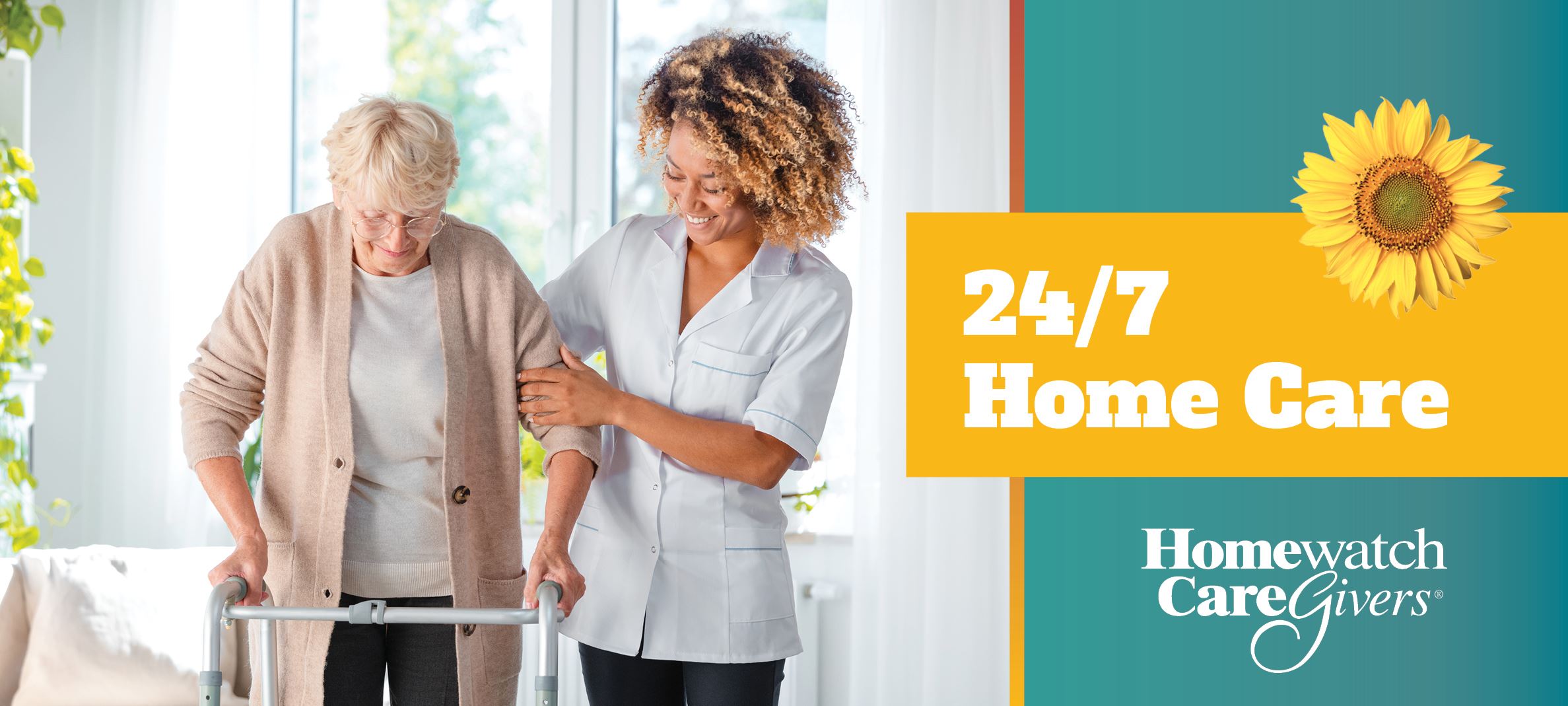Why does someone need care around-the-clock? You might be picturing some version of hospice care for a very aged person when thinking of 24/7 care, but it’s actually needed for all kinds of people and reasons.
While it is referred to as “24/7 care” it might just be 48 hours in a row, or for a few weeks or even several years. Each person is unique, and so is their care.
After Surgery Care
Even a seemingly minor surgery can require some help at home, and a loved one may not be available to stay half awake all night or physically able to help with trips to the bathroom. Professionally trained in-home caregivers can help a client as they recover from a surgery with toileting, bathing, grooming, meal prep, and transportation for follow-up appointments to the doctor.
Imagine if your loved one has had an eye surgery and needs to keep their eyes bandaged for 48 hours. Who can help them navigate around their home—walking up stairs, getting food in the kitchen, using the bathroom?
Or think of how long it takes to recuperate after a hip surgery, or recover from a stroke, and all that might need to be done first thing in the morning or even the middle of the night.
Dementia Care
People living with dementia may require 24/7 care in the later stages of the illness, and this can require multiple caregivers in shifts to address physical needs. You can learn more about the symptoms of dementia and Alzheimer’s disease here.
Wandering can occur in some cases of dementia and it can help to have a caregiver there to keep them from getting into a potentially dangerous situation at any time of day.
Respite Care
A family member may be able to do a lot for a loved one, but studies show that it is not healthy to give up sleep and your own simple pleasures for caregiving. Professional 24/7 care can give a family caregiver time for a vacation, or just a good night’s sleep, as that extra pair of hands and eyes maintains safety for everyone involved.
Many caregivers are coping with stress—either from a lack of sleep or just not having the skills to meet the needs. Hiring someone to fill their shoes for 24 hours a day and maybe even seven days in a row, has the potential to keep the family caregiver healthy enough to keep being for them most of the time.
End-of-Life Care
When someone is dying and there is time to make preparations, hospice services are sometimes called in. The fragility of the situation makes 24/7 care almost a necessity so that loved ones can take turns saying their goodbyes while not taking on full-time caregiving duties that they are not trained to do, such as lifting someone out of a bed or tending to their toileting needs.
Remember that home care can be customized for each client and their current needs, so maybe 24 hours of care a day was needed, but now only six hours a day is needed. Maintain communication to adjust plans of care to maintain optimum well-being and safety.





